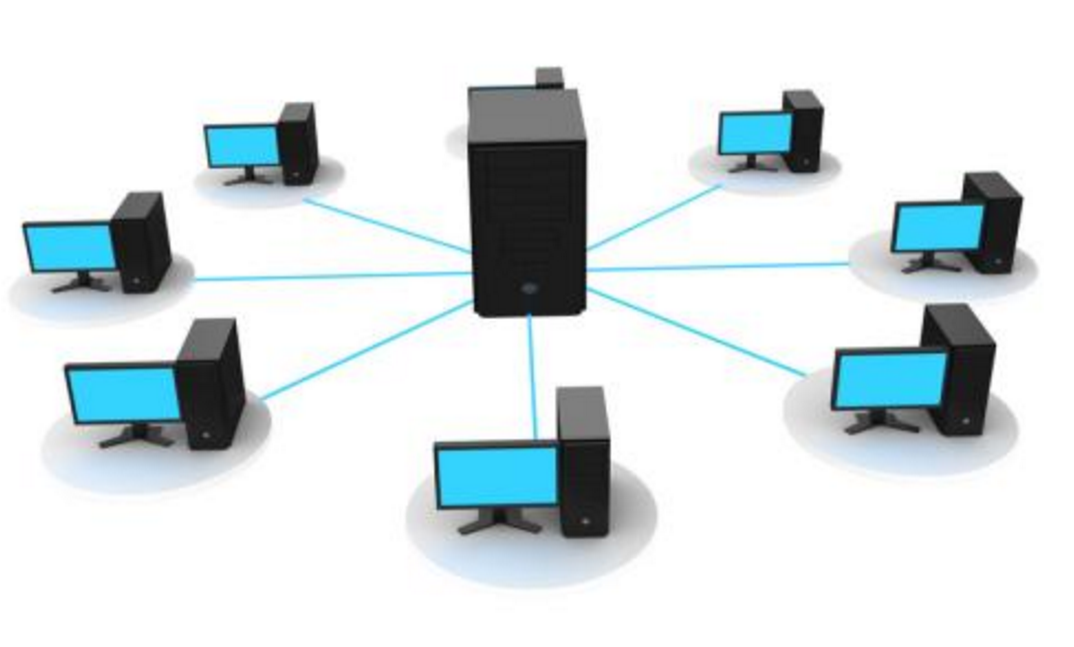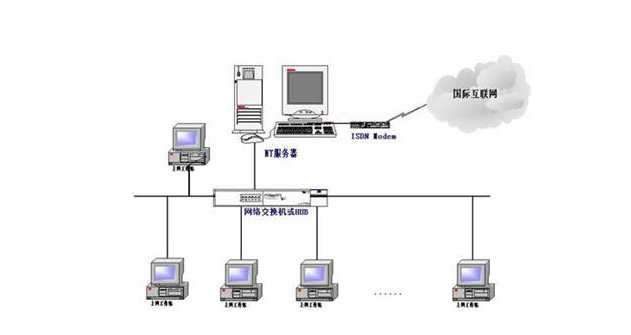Computer network functions mainly provide data communication services such as fax, email, electronic data interchange (EDI), bulletin board (BBS), remote login and browsing.
All users of the network can enjoy all or part of the software, hardware and data resources of each computer system in the network, which is the most essential function.
Each computer in the network can become a backup machine through the network. Once a computer fails, its tasks can be completed by other computers. This avoids the failure of a single computer to cause the entire system to falter in a single machine, thereby improving system reliability. When a computer in the network is overburdened, the network can hand over new tasks to a more idle computer to balance the load, thereby increasing the availability of each computer.
The three major functions of a computer network are to achieve resource sharing between computers, network communication, and improve the reliability and availability of computers. In addition to this, there are functions such as centralized management of computers, load balancing, distributed processing, and improved system security and reliability.
What is the role of computer networks?data communication
Data communication is the most basic function of computer networks. It is used to quickly transfer various information between computers and terminals, computers and computers, including text letters, news messages, consulting information, photo materials, newspaper layouts, etc. By using this feature, it is possible to connect units or departments scattered in various regions with computer networks for unified deployment, control and management.
Resource Sharing
“Resources†refers to all software, hardware, and data resources in the network. "Shared" means that users on the network are able to enjoy these resources in part or in whole. For example, some regions or units of the database (such as airline tickets, hotel rooms, etc.) can be used throughout the network; some units designed software can be called for a call to the required place or after a certain procedure; some external devices such as printers, It can be user-oriented and can be used in places where these devices are not available. If resource sharing cannot be achieved, each region needs to have a complete set of software, hardware and data resources, which will greatly increase the investment cost of the whole system.
Distribution processing
When a computer is overburdened, or when the computer is processing a certain job, the network can transfer the new task to the idle computer to complete, so that the processing can balance the load of each computer and improve the real-time processing problem; For comprehensive problems, each part of the problem can be handed over to different computers for separate processing, making full use of network resources and expanding the processing power of the computer, that is, enhancing practicality. For solving complex problems, multiple computers are used together to form a high-performance computer system. This kind of collaborative work and parallel processing is much cheaper than purchasing a high-performance large-scale computer separately.

1, resource sharing
Hardware resources: including various types of computers, large-capacity storage devices, computer peripheral devices, such as color printers, electrostatic plotters, and so on.
Software resources: including various application software, tool software, supporting software for system development, language processing programs, database management systems, etc.
Data resources: including database files, databases, office documents, enterprise production reports, etc.
Channel resource: A communication channel can be understood as a transmission medium of an electrical signal. The sharing of communication channels is one of the most important shared resources in computer networks.
2, network communication
The communication channel can transmit various types of information, including data information and various multimedia information such as graphics, images, sounds, and video streams.
3. Improve computer reliability and availability

Each computer in the network can become a backup machine through the network. Once a computer fails, its tasks can be completed by other computers. This avoids the failure of one computer to cause the entire system to smash in the case of a click, thereby improving the reliability of the system. When a computer in the network is overburdened, the network can hand over new tasks to a more idle computer to balance the load, thereby increasing the availability of each computer.
4, centralized management
Computers are an "information island" without network connectivity. When managing these computers, they must be managed separately. After the computer is connected to the network, the entire network can be managed at a central location. Such as database information retrieval system, the ticketing system of the transportation department, military command system, etc.
5, distribution processing
Distribute the tasks to be processed across computers, rather than on one large computer. In this way, not only can the complexity of the software design be reduced, but also the work efficiency and cost can be greatly improved.
6, balanced load
When the task load of a computer in the network is too heavy, the operations are distributed to other computers in the network through the control and management of the network and the application, and are completed by multiple computers.
2500 Puffs - 3500 Puffs Vape Pen,disposable pods,Dab Pen Atomizer,Vape Pen Nicotine
Shenzhen Xcool Vapor Technology Co.,Ltd , https://www.szxcoolvape.com